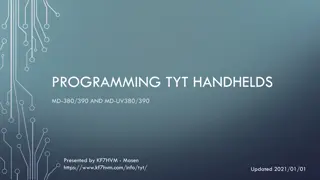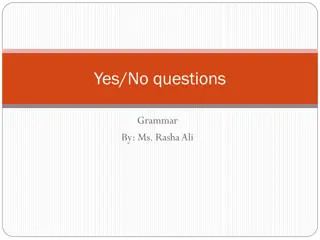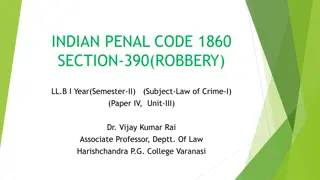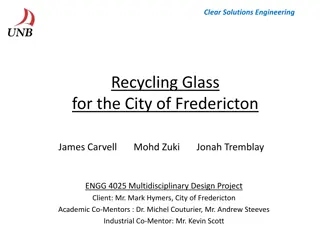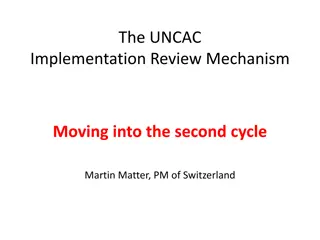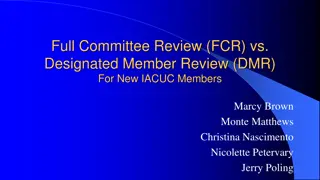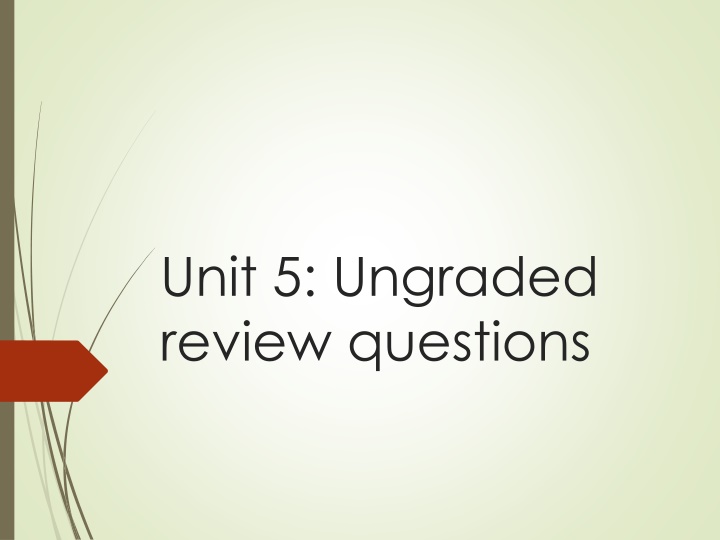
Memory and Cognitive Processes Review Questions
Explore ungraded review questions on memory and cognitive processes, including topics like sensory memory, short-term memory, interference, expertise in memory, and working memory. Test your understanding and explanation skills with these insightful questions.
Uploaded on | 1 Views
Download Presentation

Please find below an Image/Link to download the presentation.
The content on the website is provided AS IS for your information and personal use only. It may not be sold, licensed, or shared on other websites without obtaining consent from the author. If you encounter any issues during the download, it is possible that the publisher has removed the file from their server.
You are allowed to download the files provided on this website for personal or commercial use, subject to the condition that they are used lawfully. All files are the property of their respective owners.
The content on the website is provided AS IS for your information and personal use only. It may not be sold, licensed, or shared on other websites without obtaining consent from the author.
E N D
Presentation Transcript
Unit 5: Ungraded review questions
Can you explain your answer? Use your fingers to indicate your answer: 1=A, 2=B, 3=C, 4=D. After viewing the question, show me your answer in 15 seconds. Next, turn to your neighbor and you have one minute to convince him/her that you are right.
Which of the following does NOT belong to sensory memory? A. Light trial B. Motion picture C.Persistence of sound D. Echo effect
Carol has been parking in the second row of the parking lot A outside of Wynn academic building for about 2 weeks. She arrives to campus late and finds the entire lot full and has to park in lot D. She attends class in Wynn and afterwards heads to parking lot A. After wandering the lot for 10 minutes, she realizes that she actually parked in lot D and not lot A. Carol suffered from a moment of A. short-term memory B. Alzheimer s Syndrome C. retroactive interference. D. proactive interference.
Chase and Simons research compared memory of chess masters and beginners for the position of game pieces on chess boards. They found that the chess master remembered positions better when the arrangement of the pieces was consistent with a real game but not random placement. It is because: A. experts show larger primacy and recency effects than beginners. B. knowledge in an area of expertise increases a person s digit span. C. expertise with some material reduces susceptibility to proactive interference with that material. D. chunking requires knowledge of familiar meaningful patterns/concepts
Working memory differs from short-term memory in that A. short-term memory consists of a number of components. B. short-term memory has unlimited capacity. C.working memory is concerned with the manipulation of information. D. working memory has unlimited capacity.
One function of _____________ is controlling the suppression of irrelevant information A. sensory memory B. articulatory suppression C.the phonological loop D. the central executive
Which of the following is NOT a part of the Baddeley s working memory model? A. Phonological loop B. Central executive C.Visospatial sketch pad D. Episodic loop
The exam is open-book and take hone, because A. Test anxiety might affect student performance. Students can achieve the best without choking under pressure. B. Today memorization is no longer an important skill. You can Google any information you need. C. High anxiety could lead to memory bias and negative feelings. Students can learn better when they don t have negative feelings about the subject matter. D. All of the above


